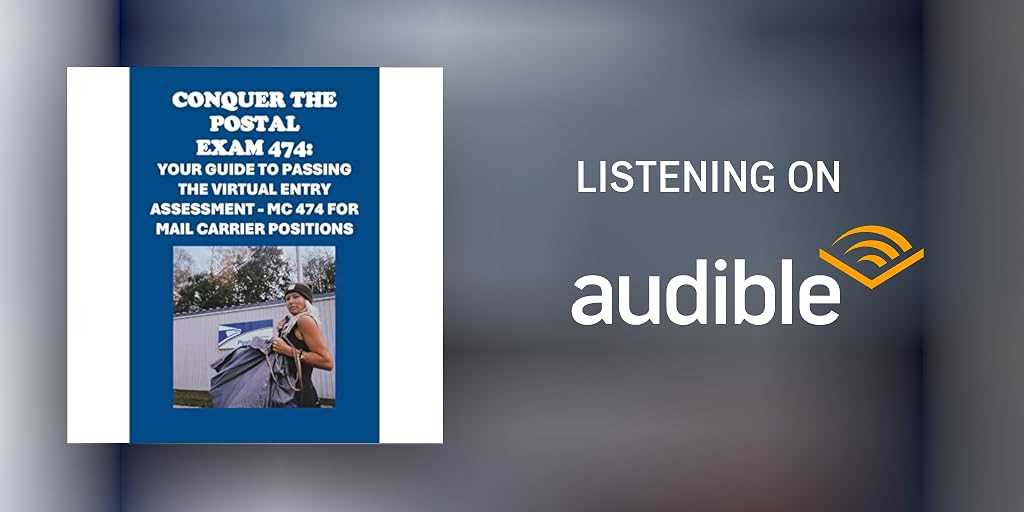
The journey to securing a position with the postal service requires passing a comprehensive selection process that evaluates various skills and knowledge. This process is designed to ensure that candidates are fully prepared to meet the demands of the job, which often includes both physical tasks and cognitive challenges. In this guide, we will explore essential preparation strategies to help you succeed in this critical step.
Achieving success in this process goes beyond just knowing how to handle mail. It requires a solid understanding of the assessment components, from written tests to practical exercises. By familiarizing yourself with the structure and content of the test, you can approach it with confidence and increase your chances of success. Whether you are preparing for the written portion or the physical assessment, each aspect plays a vital role in the overall evaluation.
Preparation is key to standing out as a strong candidate. It involves not only studying relevant material but also practicing strategies that enhance your performance under timed conditions. Throughout this article, we will provide tips and resources to guide you through each step, ensuring you are fully equipped for the challenges ahead.
Postal Service Test Preparation Guide
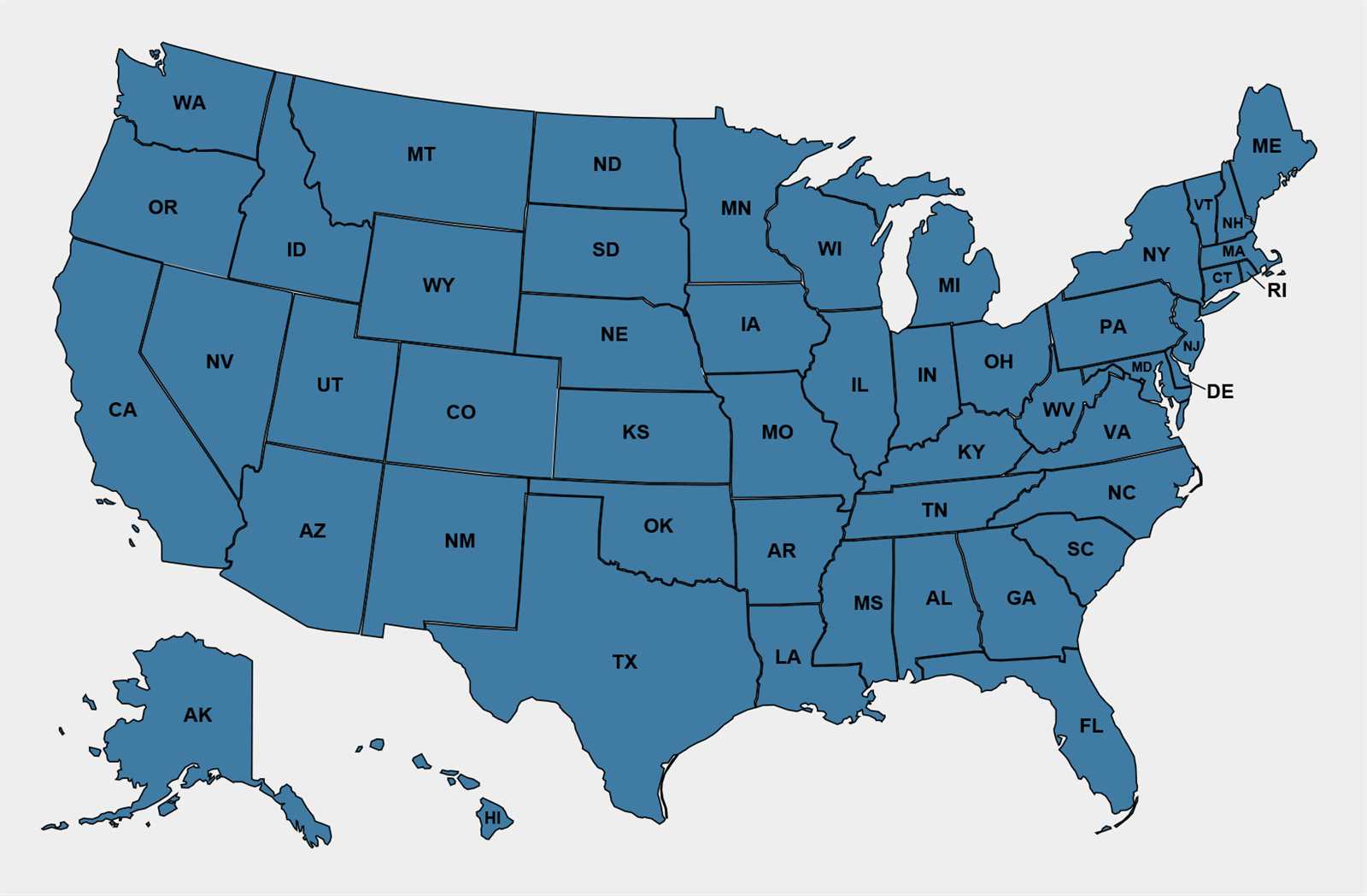
Preparing for the selection process in the postal service is essential for achieving a successful outcome. This phase is designed to assess a range of abilities, including mental agility, attention to detail, and physical endurance. By following a structured approach to preparation, candidates can increase their chances of performing well in each component and securing the job.
Key Areas to Focus On

- Written Test: Review relevant materials that cover areas such as mathematics, reading comprehension, and reasoning skills.
- Physical Fitness: Ensure that you are physically prepared for any tasks that may require stamina or strength.
- Attention to Detail: Practice tasks that test your ability to focus on small details, such as sorting or matching information accurately.
Effective Study Strategies
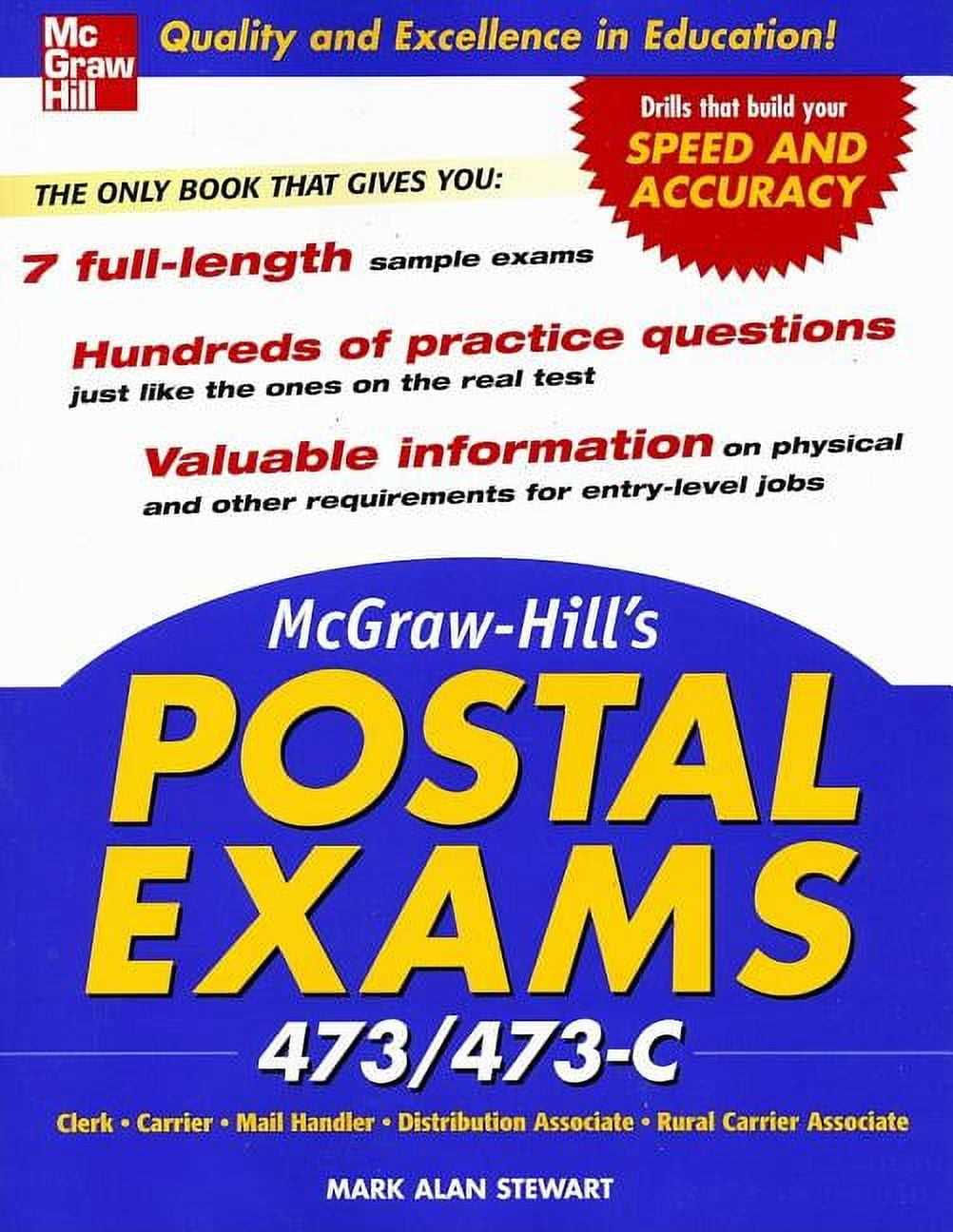
- Practice with Sample Questions: Use practice tests to familiarize yourself with the format and time constraints.
- Time Management: Develop a study schedule that allows for balanced preparation in all key areas.
- Review Mistakes: After completing practice tests, analyze your errors and focus on improving those areas.
By focusing on these crucial areas and utilizing effective study strategies, you can approach the process with confidence and readiness. Consistent preparation is the key to passing each section and demonstrating your suitability for the role.
Understanding the Postal Service Assessment
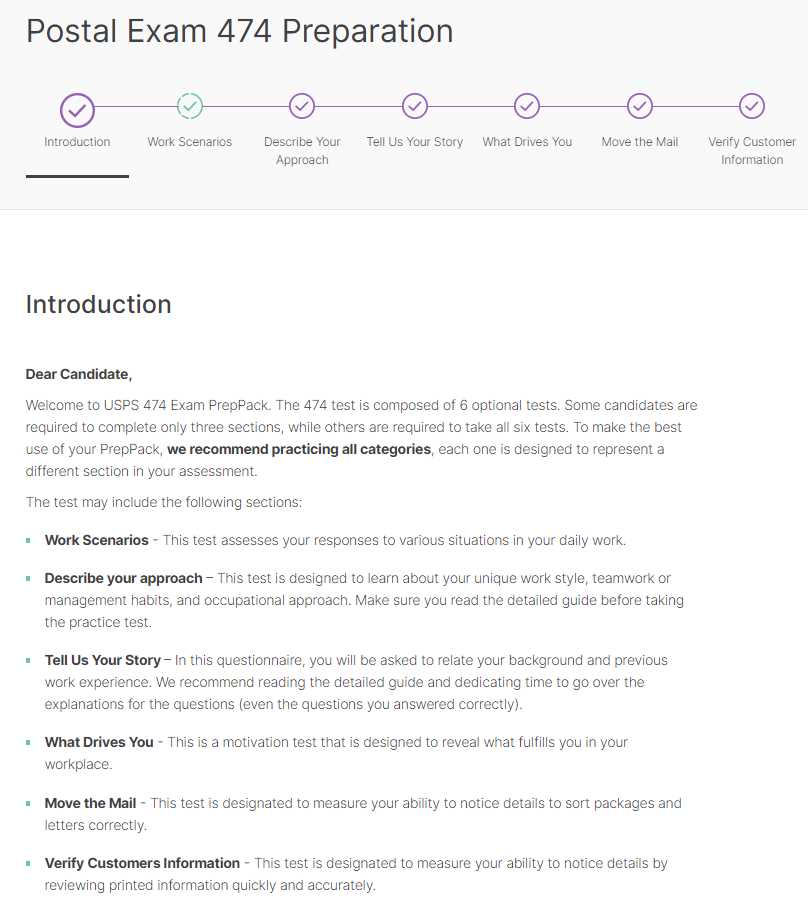
The selection process for a position in the postal field involves a thorough evaluation designed to assess a variety of skills and competencies. This assessment is structured to ensure that candidates are well-equipped to handle the diverse tasks required on the job, from physical duties to cognitive challenges. Understanding the components of this evaluation is key to successfully navigating the process and improving your chances of success.
What the Process Entails
The evaluation typically consists of several parts, including written tests that measure cognitive abilities, as well as practical assessments that test physical strength and endurance. Additionally, candidates may undergo an interview or an observational phase to assess their overall suitability for the role. Each section is designed to evaluate a different aspect of a candidate’s skills, and understanding what to expect in each area will help you better prepare.
Key Areas of Evaluation
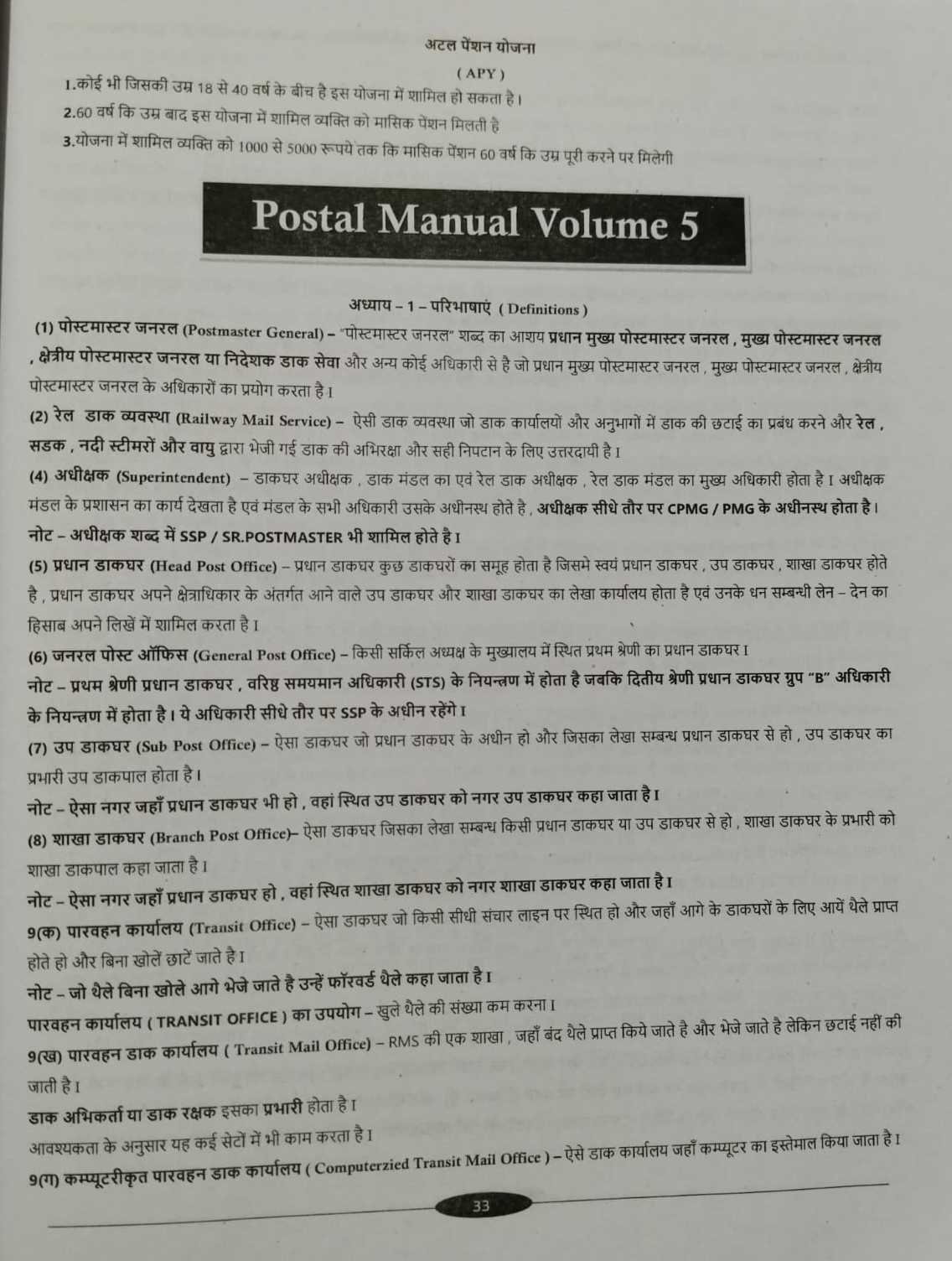
- Cognitive Abilities: This section includes tasks that test your reasoning, math skills, and ability to follow instructions accurately.
- Physical Endurance: Some components of the assessment will test your physical fitness and ability to manage the demands of the job.
- Attention to Detail: Accuracy in sorting and processing information is vital in the role, so expect tasks that test this skill.
Familiarizing yourself with the structure and content of the assessment will allow you to approach each section with confidence, knowing exactly what skills are being evaluated.
Key Skills for Success in the Postal Service
To succeed in the selection process and thrive in the role, certain skills are essential. These abilities are crucial not only for passing the assessment but also for excelling in the day-to-day tasks of the job. Candidates who possess these skills are better equipped to handle the challenges of the job and provide reliable service in a fast-paced environment.
Essential Skills for the Role
- Attention to Detail: Accuracy in managing mail and other tasks is vital. The ability to carefully follow instructions and avoid errors is critical to success.
- Physical Stamina: The job requires physical endurance, including walking, lifting, and carrying mail over long distances. Being in good physical condition helps perform these tasks effectively.
- Time Management: The ability to prioritize tasks and manage time efficiently is key to meeting deadlines and handling workload efficiently.
- Problem-Solving: Challenges often arise that require quick thinking and resourcefulness. Being able to adapt and find solutions is an important skill in the role.
Additional Skills for Enhancement

- Customer Service: Interacting with the public and providing excellent service is a significant part of the job, requiring strong communication skills and a friendly attitude.
- Teamwork: Collaboration with colleagues is necessary to ensure smooth operations and effective service delivery, making teamwork a vital skill to develop.
- Technical Knowledge: Familiarity with sorting systems, equipment, and technologies used in the job can streamline tasks and improve efficiency.
Developing and honing these skills will not only help you perform well during the selection process but will also set you up for long-term success in the field.
What to Expect During the Selection Process
The selection process for the position involves several stages designed to assess various skills and abilities. During this process, you will encounter a mix of tasks that evaluate both your mental and physical capabilities. Understanding what to expect in each phase will help you feel prepared and confident when the time comes.
Written and Cognitive Assessment

The first part of the process typically consists of written assessments that test a variety of cognitive skills. You may be asked to complete tasks related to problem-solving, basic arithmetic, reading comprehension, and reasoning. These tests are timed, and your ability to work efficiently and accurately under pressure will be evaluated.
Physical and Practical Tasks
Overall, the selection process is designed to evaluate whether you have the necessary skills, both mental and physical, to succeed in the position. By understanding the structure and expectations of each stage, you can approach the process with greater confidence and focus.
Top Resources for Test Practice
To effectively prepare for the selection process, it is important to utilize a variety of resources that can help you practice and refine the skills being evaluated. Using high-quality materials will not only familiarize you with the test format but also help you improve your performance in different areas, from cognitive tasks to physical challenges.
There are numerous resources available to assist in your preparation. These include practice tests, study guides, physical conditioning programs, and online platforms that simulate real test conditions. By using a combination of these resources, you can ensure that you’re fully prepared for every aspect of the assessment.
- Practice Test Websites: Online platforms offer free or paid practice tests that simulate the real assessment, allowing you to become comfortable with the timing and format.
- Books and Study Guides: Comprehensive study guides provide in-depth coverage of the topics likely to be tested, including reasoning, math, and reading comprehension exercises.
- Fitness Programs: Many online fitness programs cater specifically to the physical requirements of the job, helping you build the endurance and strength necessary for success.
- Mobile Apps: There are several apps that offer practice questions, mental exercises, and interactive tools to boost your preparation on the go.
By leveraging these resources, you can build confidence and improve your readiness for the selection process, ensuring that you are well-prepared to tackle every aspect of the test with ease.
Study Strategies for the Selection Process
Effective preparation for the selection process requires a focused and strategic approach. By employing the right study methods, you can maximize your learning and increase your chances of performing well in both the written and practical components of the assessment. A well-structured study plan helps you cover all the necessary material while managing your time efficiently.
One of the most important aspects of preparation is understanding the content and structure of the assessment. Creating a study schedule that allows you to focus on different areas each day ensures that you’re not overwhelmed and can retain information more effectively. Additionally, practicing with mock tests and sample questions will help you become familiar with the types of tasks you’ll encounter during the process.
- Break Study Sessions into Short Segments: Focus on one topic at a time, studying for short intervals with breaks in between. This helps improve concentration and retention.
- Practice Under Timed Conditions: Simulate the time constraints of the real assessment to build your ability to work efficiently under pressure.
- Review Mistakes: After completing practice tests, take the time to review your errors and focus on understanding why you made them. This will help you avoid similar mistakes in the future.
- Mix Study Materials: Use a variety of study tools, such as books, online resources, and apps, to cover all aspects of the test. Different formats can keep the study process engaging and comprehensive.
By adopting these study strategies, you can build confidence and ensure that you’re thoroughly prepared for the challenges of the selection process.
Common Mistakes to Avoid on the Test
When preparing for the selection process, it’s easy to overlook certain aspects that can negatively impact your performance. Understanding the most common mistakes candidates make and knowing how to avoid them can help you approach the test with confidence and increase your chances of success. Being aware of these pitfalls allows you to fine-tune your preparation and avoid unnecessary setbacks during the assessment.
- Skipping Practice Tests: Many candidates fail to take practice tests, which are crucial for understanding the format and timing of the tasks. Skipping this step can leave you unprepared for the actual conditions of the assessment.
- Not Managing Time Effectively: During the test, it is easy to get caught up in difficult questions or tasks. Failing to manage your time properly can lead to unfinished sections and lower scores. Make sure to pace yourself and move on if you’re stuck.
- Overlooking Physical Preparation: While much of the focus tends to be on the written portion, physical fitness is just as important. Neglecting physical preparation can result in struggles during the practical aspects of the selection process.
- Ignoring Instructions: It’s crucial to read all instructions carefully before proceeding with any task. Many candidates lose points by rushing through instructions or misunderstanding key steps.
- Focusing on One Area Only: Preparing for just one aspect of the test, whether it’s cognitive or physical, is a common mistake. A well-rounded study plan should cover all areas to ensure comprehensive preparation.
By avoiding these common mistakes, you will increase your ability to approach the selection process methodically, perform with greater efficiency, and ultimately succeed in securing the position.
How to Manage Test Anxiety
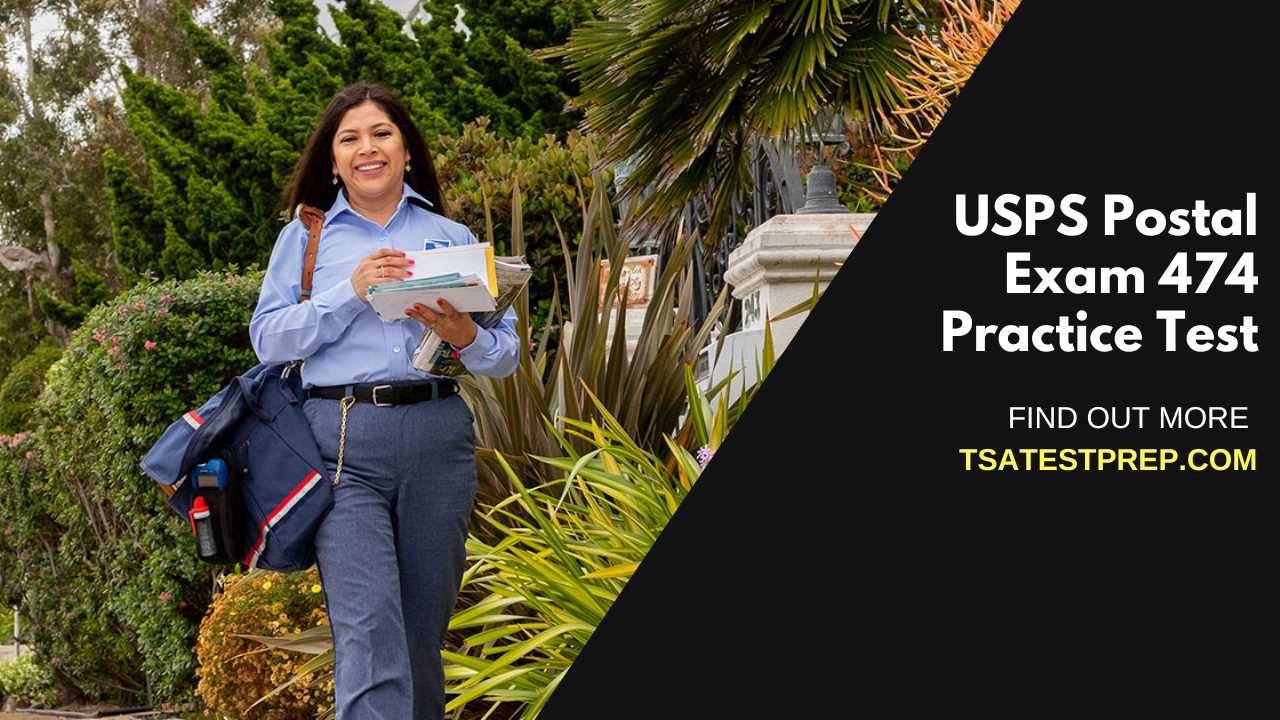
Feeling anxious before an important selection process is completely normal, but managing that stress is crucial to performing at your best. Test anxiety can affect both your focus and your performance, leading to unnecessary mistakes or a lack of confidence. By adopting effective strategies to calm your nerves and stay focused, you can approach the assessment with a clearer mind and a more positive outlook.
Techniques to Calm Nerves
- Breathing Exercises: Slow, deep breathing can help reduce anxiety and calm the nervous system. Practice inhaling deeply for four seconds, holding for four seconds, and then exhaling slowly for four seconds.
- Visualization: Picture yourself succeeding. Visualizing a positive outcome can help reduce stress and build confidence before the test.
- Physical Relaxation: Progressive muscle relaxation, which involves tightening and releasing muscle groups, can help release built-up tension and calm your body.
Mindset Shifts to Improve Focus
- Focus on the Process, Not the Outcome: Instead of worrying about the result, focus on performing each task to the best of your ability. This shift in focus can reduce anxiety.
- Stay Positive: Replace negative thoughts with positive affirmations. Remind yourself that you’ve prepared well and are capable of handling the test.
- Stay Present: Avoid dwelling on what may go wrong. Stay in the moment and tackle each task one step at a time.
By applying these strategies, you can manage anxiety, stay calm, and approach the selection process with confidence and focus.
Physical Requirements for the Selection Process
For candidates seeking a position that involves delivering materials, physical endurance and strength are essential. The selection process includes tasks that assess your ability to handle the physical demands of the job. Understanding the physical requirements beforehand helps ensure you are properly prepared for the challenges you may face during the assessment.
Key Physical Demands
- Walking Long Distances: Candidates are often required to walk significant distances throughout the day, carrying weight, which tests your stamina and endurance.
- Lifting Packages: You must be able to lift and carry packages of varying weights, which requires physical strength and proper lifting techniques to avoid injury.
- Carrying Heavy Loads: Regularly carrying heavy bags or bundles while maintaining good posture is a critical aspect of the job.
Preparation for Physical Tasks
- Build Stamina: Gradually increase your walking distance to improve endurance. Aim for brisk walks or jogs to simulate the demands of the job.
- Strength Training: Incorporate strength training exercises, such as weight lifting, to improve upper body and core strength, essential for lifting and carrying materials.
- Practice Proper Lifting Techniques: Ensure you use your legs to lift rather than your back, reducing the risk of strain and injury.
By preparing for these physical tasks, you can ensure that you meet the necessary physical standards and perform confidently during the selection process.
Selection Process Structure and Time Limits
Understanding the structure and time constraints of the selection process is crucial for effective preparation. Each component of the test is designed to assess specific skills and abilities, and knowing the format and time limits allows you to approach each section with confidence. Managing your time efficiently during the assessment is just as important as your knowledge and physical readiness.
Test Sections and Content
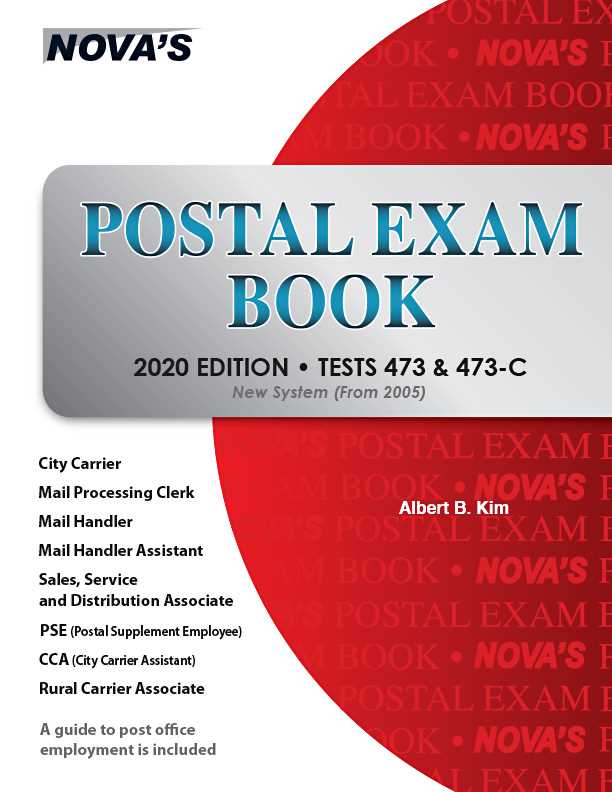
- Written Portion: This section typically involves cognitive tasks such as reading comprehension, memory recall, and situational judgment. It tests your ability to understand and respond to instructions quickly and accurately.
- Physical Assessment: Candidates are required to demonstrate their ability to meet physical demands, such as walking long distances or lifting weight, which will be timed to simulate real-world conditions.
- Practical Tasks: In some cases, candidates will be asked to perform simulated tasks related to the job, such as organizing materials or navigating routes, testing both their skills and time management abilities.
Time Management Tips
- Familiarize Yourself with the Clock: Always be aware of the time remaining and pace yourself accordingly. Practice timing yourself during mock tests to build a sense of urgency.
- Don’t Get Stuck: If you find yourself struggling with a question or task, move on and come back to it later if time allows. Staying stuck on one item can cost you valuable time.
- Prioritize Your Tasks: Focus on the easier tasks first to gain momentum and build confidence. Save more complex questions for later when you have a better understanding of how much time remains.
By understanding the structure and staying mindful of time limits, you can manage the process more effectively and improve your chances of success.
Tips for Improving Test Accuracy
Improving your accuracy during a selection process requires more than just knowledge. It involves enhancing your focus, sharpening your decision-making skills, and refining your problem-solving techniques. By applying these strategies, you can ensure that your answers are as precise as possible, increasing your chances of success.
Key Strategies for Accuracy
| Strategy | Benefits |
|---|---|
| Read Carefully | Pay close attention to instructions and questions. Misreading can lead to errors, so ensure you understand what is being asked before responding. |
| Practice Active Recall | Instead of just rereading materials, try to recall information from memory. This strengthens retention and helps prevent mistakes caused by overlooked details. |
| Focus on Details | Accuracy is often found in the small details. Avoid rushing through tasks and take time to carefully consider each element before making decisions. |
| Eliminate Distractions | Ensure that your study and test environments are free from distractions. A quiet, focused environment will allow you to concentrate and reduce errors. |
| Double-Check Your Work | If time permits, always review your answers before submitting. A second look can catch mistakes that you might have missed initially. |
By following these tips, you can improve the accuracy of your responses, avoid common pitfalls, and approach the process with greater confidence and preparedness.
Preparing for the Written Test
Success in the written portion of the selection process requires more than just familiarity with the material. It involves understanding the types of questions that may appear, honing your critical thinking skills, and practicing effective time management. With proper preparation, you can confidently navigate this section and showcase your abilities.
Understand the Test Format
Familiarize yourself with the structure of the written section. Typically, it will assess your cognitive abilities, including reading comprehension, situational judgment, and memory retention. Knowing what to expect helps you focus your studies on the most relevant areas. Common question types include:
- Multiple Choice Questions: Questions with several answer options, where you must select the most appropriate response.
- True/False Statements: Short assertions that you must evaluate for accuracy.
- Scenario-based Questions: These test your judgment and decision-making skills in hypothetical situations.
Effective Study Strategies
To maximize your performance, employ strategies that enhance both comprehension and recall:
- Practice with Sample Questions: Use practice tests to simulate the actual conditions. This helps you become familiar with the question format and improve your speed.
- Review Key Concepts: Focus on common themes, such as understanding instructions, remembering details, and applying logic to solve problems.
- Take Breaks: Avoid burnout by scheduling regular breaks during your study sessions to maintain focus and mental clarity.
By understanding the format and using effective study strategies, you can approach the written section of the selection process with confidence and precision.
How to Master the Code Section
Mastering the code section of the selection process requires sharp attention to detail and a systematic approach. This section tests your ability to quickly identify and match codes to specific locations or tasks. By using the right techniques and practice strategies, you can increase your speed and accuracy, ensuring success in this critical part of the process.
Understand the Format

The code section often involves matching numerical or alphanumeric codes with corresponding addresses, locations, or instructions. It can appear in various formats, such as:
- Direct Matching: You may be asked to match a specific code with a corresponding address or location.
- Code Identification: Given a list of codes, you will need to identify which belongs to which region or area.
- Sequence Recognition: This type of question tests your ability to recognize patterns or sequences within codes.
Effective Preparation Strategies
To improve your performance in this section, try the following strategies:
- Practice with Real Examples: Use sample tests that simulate the code section to familiarize yourself with common patterns and types of codes.
- Focus on Speed and Accuracy: Speed is important, but accuracy should never be sacrificed. Work on developing both through timed exercises.
- Memorize Key Codes: Regularly review key code formats and locations, making it easier to recall them under pressure.
By practicing these techniques and maintaining a focused approach, you’ll be able to approach the code section with confidence and efficiency.
Passing the Interview Process
The interview stage is a crucial part of the selection process, where your qualifications, communication skills, and personality are assessed. Success in this phase requires more than just technical knowledge; it involves demonstrating how well you align with the role and the organization. Proper preparation and the right mindset can help you stand out as a strong candidate.
Preparing for Common Interview Questions
During the interview, you will likely face questions that assess your experience, problem-solving abilities, and how you handle real-world scenarios. Prepare for common questions such as:
- Why do you want to work in this role? This question evaluates your motivation and interest in the job.
- How do you handle stressful situations? Here, they are looking for your ability to stay calm under pressure.
- Tell us about a time when you worked as part of a team. This question assesses your teamwork skills and your ability to collaborate effectively.
How to Make a Positive Impression
Aside from answering questions, it’s important to present yourself professionally and show enthusiasm for the position. Here are some tips to make a positive impression:
- Dress Appropriately: Opt for business casual attire that reflects professionalism and seriousness about the role.
- Be Confident: Maintain good posture, make eye contact, and speak clearly. Confidence shows that you are capable and ready for the challenge.
- Research the Organization: Demonstrate your interest by knowing details about the company or agency and its values.
With the right preparation and a calm, confident approach, you can excel in the interview and increase your chances of success in the selection process.
Essential Tools for Test Day
On the day of the assessment, being prepared with the right tools can help ensure a smooth experience. The right resources and personal items can make a significant difference in your performance. Being well-equipped also minimizes any potential distractions or issues that may arise during the test.
Key Items to Bring
Before heading to the testing center, make sure you have the following essentials:
- Identification: A government-issued ID, such as a driver’s license or passport, is usually required to verify your identity.
- Admission Ticket: Some testing locations may require you to present a confirmation or ticket that verifies your registration for the assessment.
- Writing Materials: Bring several pencils or pens, and an eraser. Some tests may also allow or require a calculator, so check the guidelines beforehand.
- Watch: A simple, non-distracting wristwatch can help you keep track of time without relying on your phone.
What to Leave Behind
To avoid distractions or potential disqualifications, there are a few things you should leave at home:
- Electronic Devices: Phones, smartwatches, and other electronic devices are often prohibited. Be sure to check the rules for your specific test.
- Notes and Reference Materials: Most assessments do not allow notes, books, or other reference materials. Ensure you’re familiar with what’s allowed.
- Personal Items: Leave any unnecessary personal items at home to prevent clutter and avoid complications during the test.
By preparing these essentials, you will feel more confident and focused on performing at your best on test day.
What Happens After You Pass
Once you successfully complete the assessment, there are several important steps that follow. Passing the test is only the beginning of your journey toward securing the position. The process typically involves a few key stages that prepare you for the next phase of your career.
After achieving a passing score, you will usually be placed on a candidate list. Depending on the specific role you’re applying for, this list may be used to determine when you will be called for the next steps in the hiring process. It is important to stay updated on any communication from the hiring agency, as further instructions will be provided.
Job Offers and Interview Process
If your score ranks highly, you may be contacted for an interview or a formal job offer. This stage is an opportunity for the employer to assess your suitability for the role and to ensure that you meet all the necessary qualifications. Interviews may focus on behavioral questions or specific skills related to the job.
Background Checks and Health Screenings
In many cases, once you’re selected for the position, you’ll undergo background checks and possibly a health screening. These checks are standard procedures to ensure that candidates meet the security and health requirements for the job. You may also need to provide documentation such as proof of identity and eligibility to work.
Successfully navigating these post-assessment stages will bring you closer to securing the position and starting your new role. Stay prepared, follow up promptly, and ensure that all required steps are completed on time to begin your career path confidently.
Postal Carrier Exam FAQs
As you prepare for the assessment, many questions may arise regarding the process, requirements, and expectations. This section addresses some of the most frequently asked questions to help clarify any uncertainties and guide you through the journey.
What is the purpose of this assessment?
The purpose of this test is to evaluate your readiness for the role you are applying for. It is designed to assess a variety of skills, such as problem-solving, reading comprehension, and spatial awareness, which are essential for the position. By passing this evaluation, you demonstrate that you have the foundational abilities needed for the job.
How should I prepare for the test?
Preparation is key to achieving success. Review any relevant materials related to the position, including sample questions or practice tests. Focus on improving your speed and accuracy in answering questions, and ensure that you are familiar with any specific knowledge areas that may be covered. It’s also helpful to manage your time effectively during the test.
Is there a passing score required?
Yes, there is typically a minimum score that you must achieve in order to move forward in the hiring process. This score may vary depending on the job type or location. It’s important to know the required score in advance, so you can set realistic goals and measure your progress during your studies.
What happens if I fail the test?
If you do not pass the test, you may be given an opportunity to retake it after a certain waiting period. The exact policy on retakes varies, so it’s important to review the guidelines for your specific situation. Use the time between tests to focus on areas where you struggled and improve your skills.
Understanding these key aspects of the process can help you feel more confident and prepared as you approach the assessment. Be sure to reach out to the hiring agency if you have any further questions or need clarification on any details.
Continuing Education After the Exam
After completing the initial assessment process, it is important to keep developing your skills and knowledge. Continuous learning ensures that you stay up-to-date with industry trends, improve your professional capabilities, and remain competitive in your field. Whether you are new to the role or have been in the industry for years, education doesn’t stop once you pass the required evaluations.
Why Continuing Education is Important
Maintaining and expanding your knowledge helps you adapt to new challenges and improve your performance in the job. It can also open up opportunities for advancement within your organization, providing you with the tools to take on more responsibilities and potentially higher-paying positions. Ongoing education supports both personal and professional growth.
Types of Continuing Education
There are various ways to continue your learning journey after the initial assessment. Below are some common options for expanding your expertise:
| Option | Description |
|---|---|
| Workshops and Seminars | Attend industry-related workshops to learn about new technologies, methods, or best practices that can improve job efficiency. |
| Online Courses | Take advantage of online platforms offering courses tailored to specific skills relevant to your role. |
| Certifications | Earn additional certifications to demonstrate your expertise in specialized areas that are important to your profession. |
| Networking and Peer Learning | Engage with others in your field through networking events and peer discussions to share knowledge and experiences. |
Regardless of the path you choose, remember that continuing education is not just about gaining new knowledge, but also about applying it effectively in your daily tasks. Stay curious, and keep learning to enhance your professional development long after completing your initial certification process.